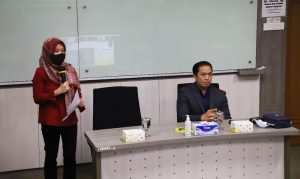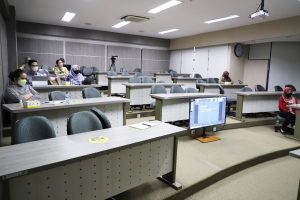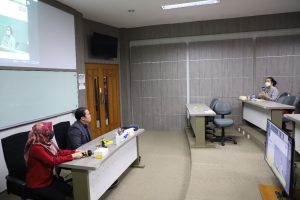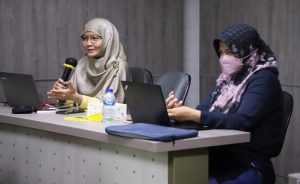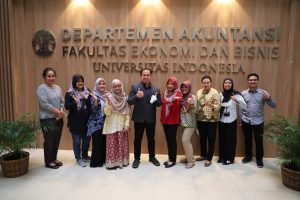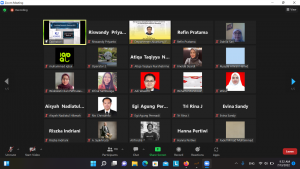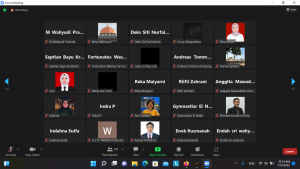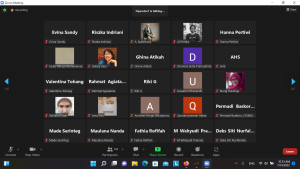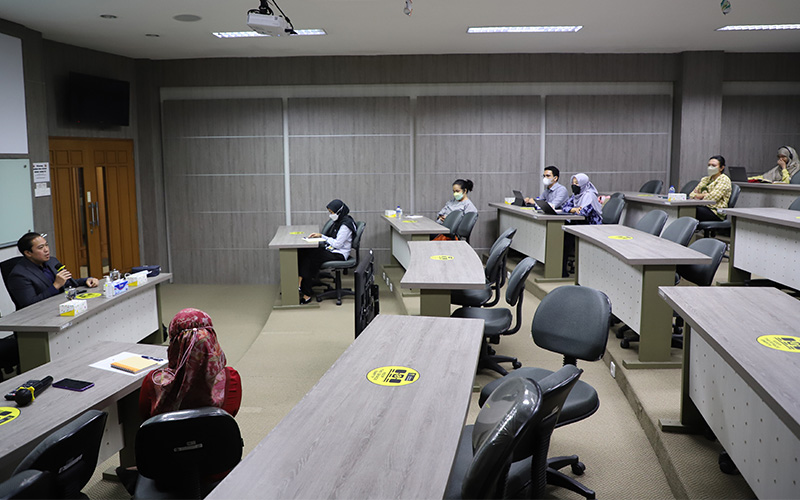Workshop of Department of Accounting FEB UI, “Navigating through the Joys and Frustrations of Publishing Academic Research”
Nino Eka Putra ~ Public Relations FEB UI
DEPOK – (13/7/2022) Prof. Adi Masli, Ph.D., Professor in Accounting and Koch Fellow, University of Kansas (KU) USA was a speaker at the Workshop of the Department of Accounting, Faculty of Economics and Business, University of Indonesia (FEB UI), entitled “Navigating through the Joys and Frustrations of Publishing Academic Research” in a hybrid manner which took place in Sidharta room, Department of Accounting Building, on Wednesday (13/7). The event was hosted by Yulianti Abbas, Ph.D., Chair of the Department of Accounting FEB UI.
Prof. Adi Masli started the workshop by explaining that Indonesia’s position in the world accounting research productivity increased from #41 in 2000 to #12 in 2020. The countries with the highest accounting research productivity are the United States, the United Kingdom, and Australia, English-speaking countries. That poses its challenges for accounting researchers.

Prof. Adi then explained the evolution of scientific articles starting from building research ideas, forming research teams, compiling scientific articles, asking for input from other parties, to submitting them to journals. Prof. Adi explained that to find sources of ideas in academic research writing, not only read journals on one’s topic but also outside the topic to add insight. With the rapid development of accounting research, the source of academic research ideas must be innovative, for example, by combining various topics or fields of science.
“For example, from magazines or business news that reports business problems/issues faced by the business world. Then, surveys of professional and industry organizations. Finally, researchers also need to do networking to collaborative research with researchers in the same or other institutions in conferences, seminars, and so on,” said Prof. Adi.
Furthermore, Prof. Adi explained that every researcher must have experienced rejection in publishing academic research. Four factors are often the reason for rejection of academic research, including insufficient contribution, the limited scope of the article and analysis, lack of justification or linkage of research to existing theories, and quality of writing. Prof. Adi then explained strategies to overcome these four problems.
At the end of his presentation, Prof. Adi explained the importance of the Introduction section in scientific articles and gave examples of important points that should be included in the Introduction section. As academic research writers, we want to publish our research in the best possible journal. “Academic and practical contributions, as well as theoretical justification, are the main things in increasing our probability of being accepted and successful in academic journals,” Prof. Adi concluded his session.
